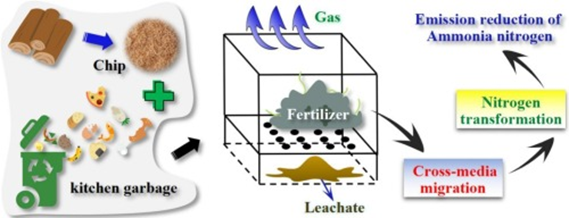May 20 2023 | Science of The Total Environment |
Microorganisms play a crucial role in the transformation of nitrogen during composting, yet their ability to mitigate ammonia (NH3) emissions remains poorly understood. To address this gap, a collaborative study by the University of Geneva, Switzerland, and the Ministry of Agriculture and Rural Affairs, China, investigated the impact of microbial inoculants (MIs) and different composting phases on NH3 emissions.
The researchers constructed a co-composting system using kitchen waste and sawdust, comparing systems with and without MI additions. The results revealed a significant increase in NH3 emissions upon adding MIs, with leachate contributing the most to ammonia volatilization. Furthermore, MIs influenced the proliferation of core microorganisms involved in NH3 emission, reshaping the microbial community dynamics.
The study also highlighted the ability of MIs to enhance the co-occurrence of microorganisms and functional genes related to nitrogen metabolism. Notably, genes associated with dissimilatory nitrate reduction showed increased abundances, contributing to elevated NH3 emissions.
This research provides valuable insights into the microbial mechanisms involved in nitrogen reduction during composting, furthering our understanding of effective nitrogen reduction treatments in agriculture. The findings contribute to sustainable waste management practices and environmental stewardship.
Graphical abstract






